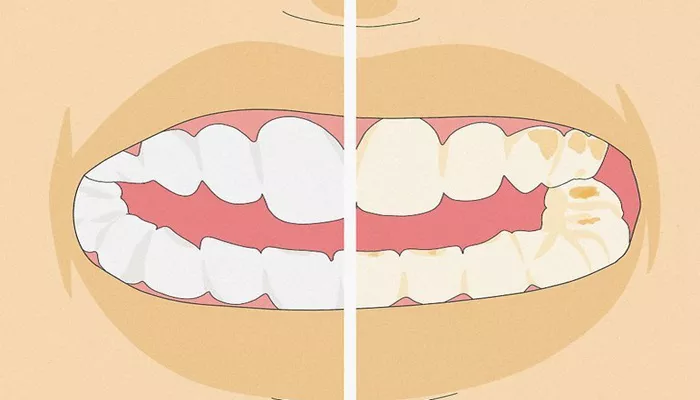Teeth whitening is a popular cosmetic dental procedure aimed at improving the appearance of discolored or stained teeth.
Many people seek this treatment to achieve a brighter smile. However, concerns often arise regarding the potential impact of whitening products on tooth enamel, especially for those who may have already experienced enamel loss. This article explores whether teeth whitening can compensate for the loss of tooth enamel, examining the relationship between whitening agents and enamel health.
What Is Tooth Enamel?
Tooth enamel is the outermost layer of a tooth and serves as its protective shield. It is the hardest substance in the human body, composed mainly of minerals, primarily hydroxyapatite. Enamel protects the inner layers of the tooth from damage, decay, and sensitivity. However, factors such as poor oral hygiene, acidic foods and beverages, and certain medical conditions can lead to enamel erosion, making teeth more vulnerable to decay and sensitivity.
The Process of Teeth Whitening
Teeth whitening works by using bleaching agents to lighten the color of the teeth. The most common agents used in whitening products are hydrogen peroxide and carbamide peroxide. These chemicals penetrate the enamel and break down the stains into smaller, less pigmented molecules, resulting in a whiter appearance.
see also: How Much Does Teeth Whitening Cost In The Uk
Types of Teeth Whitening
In-Office Whitening: This professional treatment involves higher concentrations of bleaching agents and is performed by a dentist. It typically yields immediate results.
At-Home Whitening Kits: These include trays, strips, or gels with lower concentrations of bleaching agents. They are used over a longer period and can produce effective results but may take time.
Whitening Toothpastes: These products contain mild abrasives and chemical agents that can help remove surface stains but do not change the intrinsic color of the teeth.
Can Whitening Compensate for Enamel Loss?
Enamel Loss and Sensitivity
When tooth enamel is worn away, the underlying dentin becomes exposed. Dentin is softer and more porous than enamel, making teeth more susceptible to sensitivity and decay. The primary concern is whether whitening agents can further exacerbate these issues or if they can somehow “replace” the lost enamel.
Whitening Agents and Enamel Health:
Effect on Enamel: Research indicates that most teeth whitening products, when used as directed, do not significantly damage the enamel. However, overuse or misuse of these products can lead to increased sensitivity and potential damage.
No Regeneration: Whitening does not regenerate or replace lost enamel. It can lighten existing stains but cannot restore the structural integrity or thickness of the enamel.
Temporary Appearance Improvement:
While whitening can enhance the aesthetic appearance of teeth, it does not address the underlying issues caused by enamel loss. Teeth may appear whiter, but the structural vulnerability remains unchanged.
Addressing Enamel Loss
If you have experienced enamel loss, it’s essential to address the condition of your teeth before considering whitening treatments:
Consultation with a Dentist: Always seek professional advice. A dentist can evaluate the extent of enamel loss and recommend appropriate treatments or preventive measures.
Remineralization Treatments: Products containing fluoride or calcium phosphate can help strengthen weakened enamel.
These treatments do not replace enamel but can help protect against further damage.
Alternative Cosmetic Options: For those with significant enamel loss, veneers or bonding may be more suitable cosmetic options. These treatments can restore the appearance of teeth without compromising their health.
Best Practices for Teeth Whitening
To ensure safe and effective whitening without exacerbating enamel loss, consider the following guidelines:
Follow Instructions: Always use whitening products according to the manufacturer’s instructions. Overuse can lead to sensitivity and potential damage.
Choose Professional Treatments: In-office whitening by a dental professional may be safer and more effective for those concerned about enamel loss.
Maintain Oral Hygiene: Regular brushing and flossing, along with routine dental check-ups, can help protect enamel and overall dental health.
Consider a Lower Concentration: For at-home treatments, choose products with lower concentrations of bleaching agents, especially if you have sensitive teeth or existing enamel issues.
Conclusion
Teeth whitening can significantly improve the cosmetic appearance of teeth, but it cannot compensate for the loss of tooth enamel. While whitening agents can enhance the brightness of your smile, they do not restore or replace lost enamel. For individuals with enamel erosion, it’s crucial to focus on protecting and strengthening the remaining enamel through proper dental care and consultation with a professional. Always prioritize your dental health alongside your cosmetic desires to achieve the best outcomes for your smile.
Related topics:

